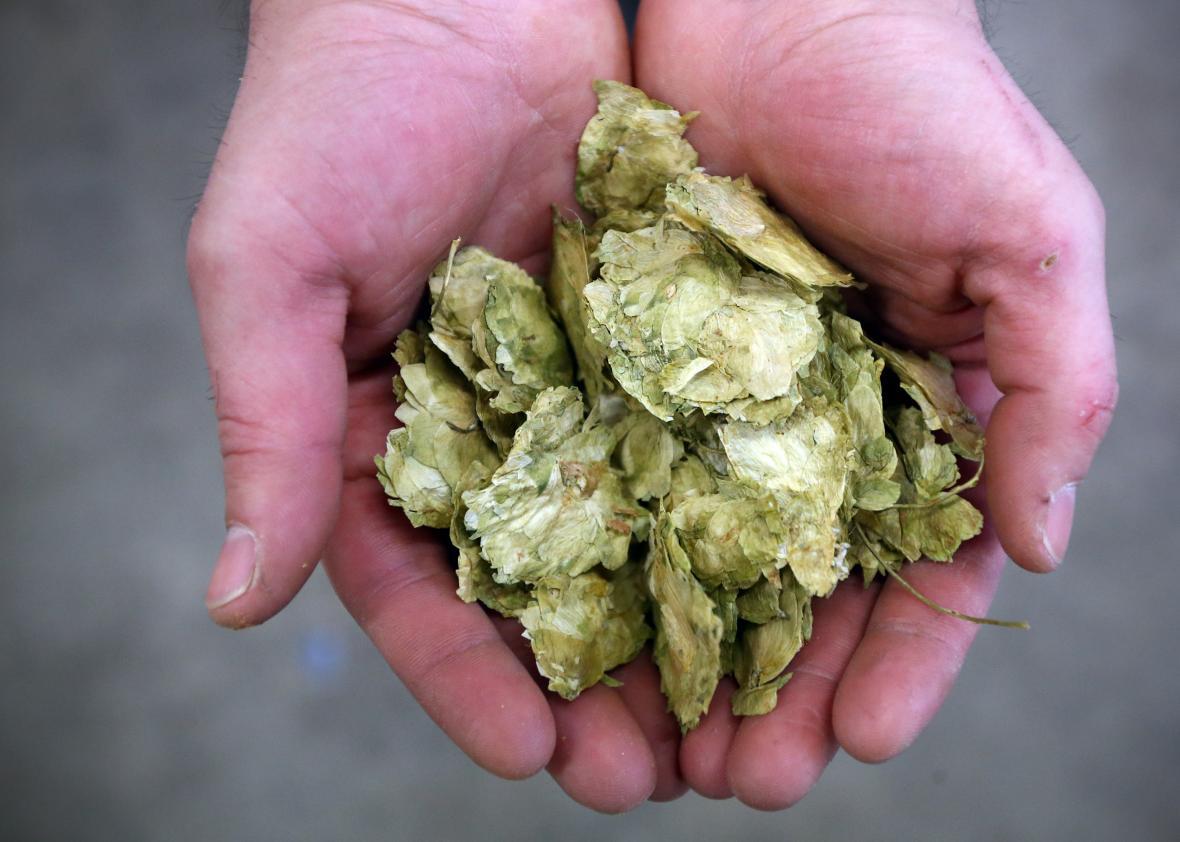Hops: They’re delightful. They give beer its bitter snap and create those lovely piney, citrusy aromas in your India pale ale. Unfortunately, farmers apparently can’t produce enough of the little green flowers to keep up with the demand from the ever-growing number of American breweries. And according to the Wall Street Journal, that shortage is one factor slowing down the rise of craft beer sales—which last year increased 8 percent, “ending six years of double-digit growth.”
I wouldn’t exactly say it’s time to pour one out for the craft beer boom based on those numbers, but the hop problem does illustrate how what economists call “frictions”—and what the rest of us call real life—can muck with the laws of supply and demand. Given the boom in fancy beer sales, you’d expect American farmers to be planting hops like mad to cash in on a blooming industry. And indeed they are. Farmers are devoting 65 percent more acres to growing hops than they were five years ago, according to the Journal. But it takes a few years for hop plants to reach their full yield. (That’s a friction.) In the meantime, new craft breweries are still popping up every other day—from 2012 to 2015, the total number jumped some 75 percent. Making matters worse, hot, dry weather ended up destroying a good chunk of Europe’s most recent hop harvest (apparently climate change is going to ruin our beer).
The upshot is that right now, supply can’t really stretch to meet demand, which has made hops—particularly hot new breeds that beer nerds are clamoring for—much more expensive. As Reuters reported earlier this year, “Prices of some hop varieties have risen by up to 50 percent, industry sources say, while industry insiders say others are up to five times more expensive or simply not available.” Since breweries generally purchase hops using three- to five-year contracts, not all of them are suffering from the price hikes right at this moment. But many are, and newer brewers that haven’t locked in their supply are struggling.
So, what does this mean about your beer? Chances are, it’s going to get a bit more expensive in the next few years. And since beer buyers are pretty price-sensitive, that suggests we should continue to see sales growth cool off a bit. But beyond that, I imagine brewers will try to compensate by moving to less hoppy styles. So I hope you like sours. Can I recommend this gose?
